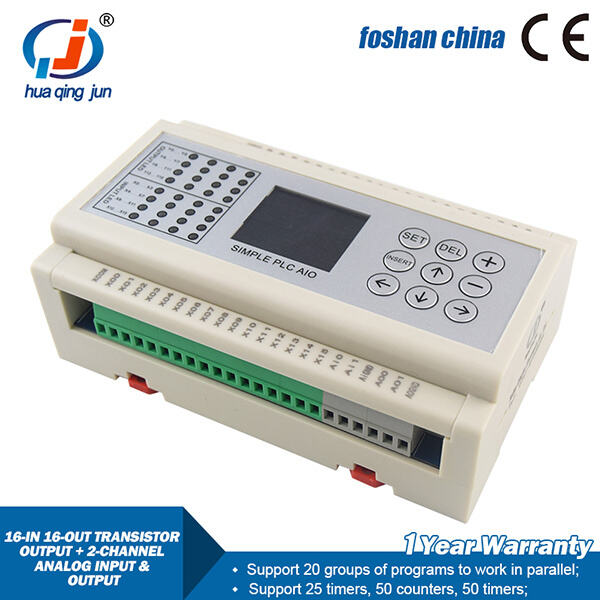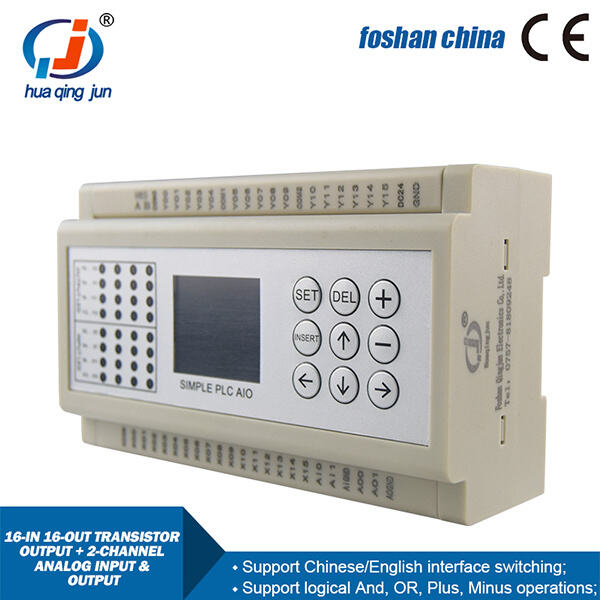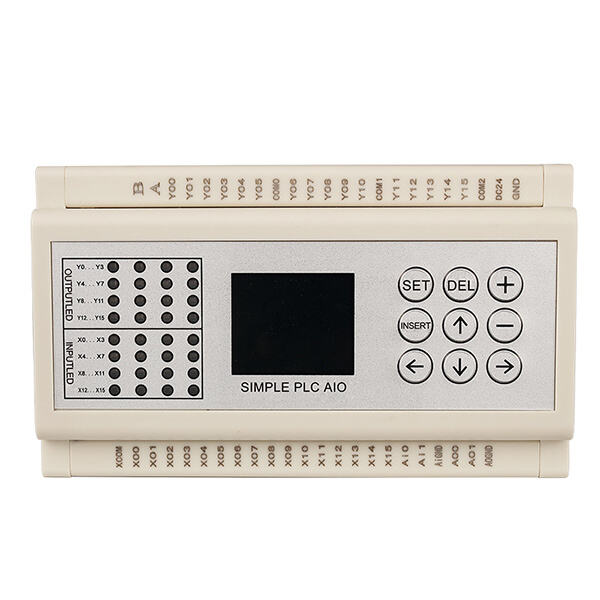The introduction of Programmable Logic Controllers (PLCs) is a turning point in the industrial automation industry and how machines run today compared to traditional fixed systems using some relay circuits, ladder logic diagrams or timing-shifted sequential programming. These digital computers are built for specifically industrial environments and merge hardware with software to control manufacturing operations in an automated manner, providing quality results on a certain level of accuracy (precision) which is consistent all over the life cycle. With industries pushing towards maximum efficiency and productivity, PLC controlled machinery has become a key factor in allowing factories to finely tune their operations like never before.
At the core of improving factory effectiveness is the capacity for a PLC to control and communicate seamlessly with numerous machines as well as processes. PLCs reduce wiring complexity, lower maintenance requirements and provide real time measurement of the control system that traditional relay basing requires. This leads to integrative processes where machines get individual actions, adjust themselves as the productions requirements shift and even anticipate their coming maintenance dates - thus cutting waste & downtime. PLCs also provide versatility in programming, enabling modification of processes as needed without the need to rewire anything on site and quickly address product differences or improvements when they arise.

Manufacturing accuracy is key, as slight variations can result in inferior products or resources gone to waste. PLCs highest contribution is to keep the accuracy of the systems up as close loops control techniques. They consistently receive inputs from sensors, altering machine outputs in response to moving items like position, temperature control and speed regulation that can be carried out such as within close limits. This type of control reduces errors and helps to maintain product quality, which is vital in industries such as automotive rail pharmaceuticals or aerospace where precision must be within a controlled range.

The journey begins for beginners in PLCs - Learning the basics of processor module, input/output modules (I/O) and programming software. The first step to identifying your ideal industrial robot is defining the requirements of your specific manufacturing process, things like what machines need controling and how automated it should be. Choose a PLC that meets your processing requirements, and compatible with existing equipment. First and foremost you must be well versed with a programming language such as Ladder Logic which is used to write control logic. Most manufacturers of PLCs provide training courses and software simulators in order to make it more palatable. Lastly, extensive testing and debugging prior to going full scale can assure that the transition goes smoothly with PLC controlled operations.

The PLC-controlled machinery has a supreme advantage when it comes to less downtime and more output than any other machine that can be used for material handling. PLCs possess diagnostic capabilities that can alert operators to imminent machinery failures -- enabling predictive maintenance and faster repairs, before breakdowns occur. By doing so, unscheduled downtime is dramatically decreased. PLCs can also reduce machining cycles by dynamically adjusting operational speeds in response to real-time demand and performance data, which helps increase throughput. PLCs also improve workplace safety, enhance operational continuity and productivity by automating sequences reducing human intervention in dangerous or repetitive tasks.
product development has secured many patents. company has been awarded distinctions like "National High-tech Expertise", "Guangdong Province Contract-abiding Enterprise" "Creditworthy Enterprise". The products have been accredited by the "IS09001-2015 quality certification" and have also been able to pass other certifications, such as FCC and CE. The company gathered large number of experienced R D talents with backgrounds in professional academics such as electronic engineering, plc control machine engineering communication engineering, and more. team of experts works closely with their customers improve the overall experience for customers. They also serve large numbers of companies as well as manufacturers equipment. We create more competitive industrial solutions our customers. company has a highly skilled intelligent production facility. All products come with solid and well-established chips that guarantee top performance. Customers are able to use and buy with confidence.
There are many different applications, such as parking system, greenhouse ETC induction system traffic lights system streetlamps control smart home systems, water spray control system, fire alarm system HVAC SCADA, remote controls. There is variety of applications that include parking systems. greenhouse, ETC Induction, packaging system. Traffic lighting system. street lamp control. Smart home automation. robot control. water spray control. production line is fitted with plc control machine SMT mounter, automated wave soldering, an automatic packaging machine, as well as a full set quality inspection equipment that ensures each product "carefully and skillfully created" and that the customers can buy and use it with confidence. are able to provide various options to meet the needs of our customers' systems.
Huaqingjun a renowned manufacturing company industrial control. With over 20 years' experience, company has become as huge enterprise covering 3000 square meters that focuses on the creation, production and the sale of Internet of Things. plc control machine has highly skilled R D department that can provide technical solutions our customers. Our company offers 4G modules, Ethernet modules, WIFI modules, Bluetooth Modules, Simple Programmable PLC Integrated Machines, RS485 Communication Modules Industrial Relay Modules PLC AC/DC Power Amplifier Modules as well as other core products.
company holds variety of national patents and has also won honors like "National High-Tech Expertise" and "Guangdong Province Contract-abiding and Credit-abiding Enterprise". The products have been inspected and certified "IS09001:2015 Quality Certification". has received CE, ROHS, FCC, SGS etc. certifications. And the company has gathered an impressive number of highly skilled R D experts with academic backgrounds electronics engineering, automation Engineering, communication engineering etc. team of experts dedicated serving the end-users, continually improving customer service, and is able serve most plc control machine of Things companies and equipment manufacturing firms.
To explore the world of PLC control which is getting broader with advancement in technology. An emerging trend is the use of IoT (Internet Of Things) to support PLCs, by having an integration between their regular architecture and that involving connection with cloud platforms for remote monitoring / data analytics and enhanced predictive maintenance on a larger scale. This Industry 4.0 concept, some call it IIoT (Industrial Internet of Things), enables smart factories where machines,sytems and humans work together in harmony. In addition to being smaller and more efficient, PLCs are designed for use in smaller machines or operating environments. Also, new programming languages and software tools have made it easier for complex control strategies to be realized in mission-critical real-time applications enabling expedited time-to-market of next generation products or process. The next PLC-controlled machines will become more autonomous and adaptive, learning from previous operations to perform better in the future thanks to AI & machine-learning algorithms integrated into modern-day Programmable Logic Controllers.
PLC algorithmic machines have become an important part of the contemporary industrial fields, streamlining processes and enhancing performance results to unparalleled heights but at cost-efficient rates that boost throughput while diminishing Machine downtimeinstances. With technology advancing ever farther the capabilities of PLCs are sure to grow, making them an even more established centerpiece in industrial automation. The future of manufacturing is intricately linked to these programmable wonders whether you are a novice in the PLC realm or someone who has long been contending with them from their genesis.